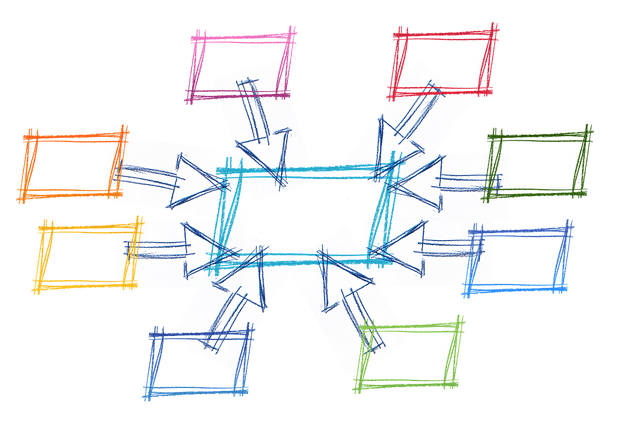It has to do with the organizational structure of the company, the term centralization in administration refers to the concentration of decision making at a single point in the organization. This concept only includes formal authority, such as the right inherent in the position.
If upper management exercises control over all key decisions of the organization without any input from lower-level personnel, this organization is said to be centralized, on the contrary, the more said personnel contributes or participates, the greater decentralization.
Advertisements
Centralization is characterized by the willingness to bring together authority and decision-making in a fairly small group of people, lacking delegation In some cases, the greatest activity falls on the administrator, who has the initiative, the decision-making power and the authority to exercise the respective functions. The rest of the staff is clearly subordinate to this.

Advertisements
In this article you will find:
Linear organization and centralization
This type of organizational structure is a clear example of centralization in administration, It is a simple organization, with a pyramidal structure, where the head of each area receives guidelines and He transmits what is happening in his area, to the superior through rigidly established lines of communication.
The authority is linear and unique, the authority of a superior boss over the rest that are the subordinates, each subordinate reports directly and only to his superior, has a single boss and does not receive orders from any other.
Advertisements
Communication is carried out through the lines established and clearly identified in the organizational chart, each superior centralizes upline communication from the subordinates.
Decisions are centralized, characterized by segmentation and the approach of authority towards the pinnacle of the organization. There is a supreme authority that centralizes all decision making and controls the entire organization.
Advertisements
Advantages of centralization
- Decision-making rests with managers, who have a global perspective of the organization.
- These decision-makers are better trained, trained, and familiarized with the activity of the company and management, that the subordinates who are at the highest levels low.
- It allows uniformity in decision-making, in the application of politics and working methods.
Disadvantages of centralization:
- Decision-makers have very little contact with subordinates and deal with some involved situations from afar.
- In a delegation of minimal authority, the most lagging lines of communication cause delays in the fulfillment of general goals.
- It does not allow the development of subordinates at the lowest levels of the organization.
- The work of superiors is somewhat busy.
- Sometimes the decisions are not the best, especially with respect to a certain level where there is a lack of direct knowledge of the performance of the work.
- There is very little motivation thanks to the low participation of subordinates in decisions.
Ultimately, it is more difficult for an organization to achieve its objectives without delegation of authority, since the body of senior executives cannot carry out all activities, however, a minimum of decisions can be delegated and the relevant decisions and more can be retained to senior management or higher bodies important.


